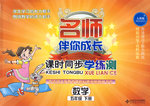
| |||||||||||||||||||||||||||||||||||||||||||||||||||||||||||
(1) |
这篇阅读材料是一则新闻,报道的时间是October 2,2003, Tuesday(在篇末),而文章一开头就提到了Friday,而这个Friday就是10月2日之前的日子。 |
(2) |
根据文中细节可以排除A、B和D项,而句子“There were no reports of deaths directly caused by the quake, which struck at 4∶50 am(local time).Two fishermen are still missing, though”则表明C项的表述是正确的。 |
(3) |
文中第五段提到地震使Tomakomai的一个油槽起火。 |
(4) |
只有第七段提及了2003年7月23日的那场地震,而B、C、D三项说的都是日本地震的情况。 |


 名师伴你成长课时同步学练测系列答案
名师伴你成长课时同步学练测系列答案科目:高中英语 来源:新课标英语阅读 高中三年级·下册 题型:050
阅读理解:
There is one foreign product the Japanese are buying faster than others, and its popularity has caused an uneasy feeling among many Japanese.That product is foreign words.
Cairaigo ![]() words that come from outside
words that come from outside ![]() have been part of the Japanese language for centuries.Mostly borrowed from English and Chinese, these terms are often changed into forms no longer understood by native speakers.
have been part of the Japanese language for centuries.Mostly borrowed from English and Chinese, these terms are often changed into forms no longer understood by native speakers.
But in the last few years the trickle (涓涓细流) of foreign words has become a flood, and people fear the increasing use of foreign words is making it hard for the Japanese to understand each other and could lead to many people forgetting the good qualities of traditional Japanese.
“The popularity of foreign words is part of the Japanese interest in anything new,” says university lecturer and writer Takashi Saito.By using a foreign word you can make a subject seem new, which makes it easier for the media to pick up.
“Experts often study abroad and use English terms when they speak with people in their own fields.Those terms are then included in government white papery,” said Muturo Kai, president of the National Language Research Institute.“Foreign words find their way easily into announcements made to the general public, when they should really be explained in Japanese .”
Against the flow of new words, many Japanese are turning back to the study of their own language.Saito's Japanese to Be Read Aloud is one of many language books that are now flying off booksellers' shelves.
“We were expecting to sell the books to young people,” said the writer, “but it turns out they are more popular with the older generation, who seem uneasy about the future of Japanese.”
1.What advantages do foreign words have over traditional Japanese terms?
[ ]
A.The ideas expressed in foreign words sound new.
B.Foreign words are best suited for announcements.
C.Foreign words make new subjects easier to understand.
D.The use of foreign words makes the media more popular.
2.In the opinion of Takashi Saito.Japanese people________.
[ ]
A.are good at learning foreign languages
B.are willing to learn about new things
C.trust the media
D.respect experts
3.Which of the following plays an important part in the spread of foreign words?
[ ]
A.The media and government papers.
B.Best-selling Japanese textbooks.
C.The interest of young Japanese.
D.Foreign products and experts.
4.The book Japanese to Be Read Aloud ________.
[ ]
A.sells very well in Japan
B.is supported by the government
C.is questioned by the old generation
D.causes misunderstanding among the readers
查看答案和解析>>
科目:高中英语 来源:高中课程新学案 高中三年级、英语 题型:050
| |||||||||||||||||||||||||||||||||||||||||||||||||||||||||||||||||||||||||
查看答案和解析>>
科目:高中英语 来源:101网校同步练习 高三英语 人民教育出版社(新课标A 2002-3年初审) 人教版 题型:050
| |||||||||||||||||||||||||||||||||||||||||||||||||||||||||||
查看答案和解析>>
科目:高中英语 来源:导学大课堂必修四英语北师版 北师版 题型:050
| |||||||||||||||||||||||||||||||||||||||||||||||||||||||||||||||||||||||||
查看答案和解析>>
科目:高中英语 来源:内蒙古包头33中学2009-2010学年高一上学期期中考试英语试题 题型:050
| |||||||||||||||||||||||||||||||||||||||||||||||||||||||||||
查看答案和解析>>
湖北省互联网违法和不良信息举报平台 | 网上有害信息举报专区 | 电信诈骗举报专区 | 涉历史虚无主义有害信息举报专区 | 涉企侵权举报专区
违法和不良信息举报电话:027-86699610 举报邮箱:58377363@163.com